Politics
Presidency under pressure: Conflicts in APC get to boiling point
Published
10 years agoon
By
Olu Emmanuel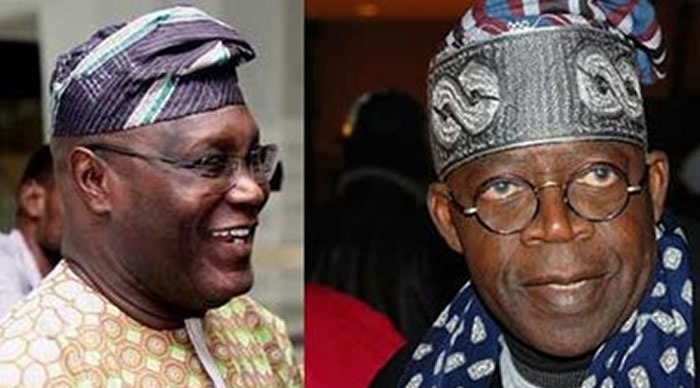
ACN, nPDP factions fight to finish
By SUNDAY ODIBASHI
THE Presidency is getting anxious over the protracted internal conflicts ravaging the All Progressives Congress (APC) since the party took over the central government in 2015.
President Muhammadu Buhari is now going out of the ruling APC to seek help.
Series of meetings and interventions, including that of former Senate presidents with Buhari, and that between APC’s chair John Oyegun and ex-VP Atiku Abubakar are part of the consultations to resolve the conflicts.
In fact, the Senate committee reshuffling done last week by Senate President Bukola Saraki was part of the political solutions Aso Rock may have to acknowledge as a way out of the logjam.
Buhari’s broad-based approach, sources said, is ineviatble after all, considering the fall outs of the pockets of crises that have been rocking the arms and institutions of his government.
These problems are also weighing down the party’s effort to control the body polity well enough to deliver the good.
The situation was exacerbated by recent rumours of a coup plot and impeachment threat, precipitating urgent need for interventions and reconciliations.
This was disclosed to be the reason for his meeting with the former principal officers of the NASS, including Sen. David Mark, Ken Nnamani, and former Speaker of the House of Representatives, now Katsina Gov. Aminu Masari, at the Presidential Villa.
It was gathered that the meeting provided opportunity to explain to the president the rudiments of the workings of the legislature and related issues of separation of powers.
They were said to have reached an understanding which subsequently led to persuading Senate President Saraki reshuffle the Senate committees, which was a pre-condition given by the aggrieved senators for peace to return to the Upper Chamber.
Saraki, accordingly, carried out reshuffling of the committees last Thursday.
President Buhari has since the crisis in the National Assembly restrained himself from butting in on any of the controversial issues, particularly, those on which the Senate president is being prosecuted in court.
Though some of the ministers he appointed are perceived to be playing partisan roles in the impasse.
Pressure has also mounted on the leadership of APC to seek quick resolution of the internal conflicts before they consume the party.
ALSO SEE: Tinubu, Atiku, cold war deepens
This was said to be the basis of the recent meeting between APC National Chairman, John Odigie-Oyegun, and former Vice President Atiku Abubakar, at the National Secretariat, Abuja.
Manifestations from the conflicts so far tend to reveal overt power tussle between two factions in the APC, identifiably, the Action Congress of Nigeria (ACN) and the new Peoples Democratic Party (nPDP), contending for their respective shares of who gets what, when and how much from the party leadership.
At different times, principal political actors widely presumed to be leading the two factions while engaging in a seeming Cold War include the APC national leader, Asiwaju Bola Ahmed Tinubu, leading the ACN faction; former Vice President Atiku Abubakar, leading the nPDP faction. Those in the battlefield include leadership of the National Assembly, notably, the President of the Senate, Dr. Abubakar Bukola Saraki, and his army of loyalists; on the other divide are Senators Kabiru Marafa, Suleiman Hukunyi, Remi Tinubu and their supporters.
The Speaker of the House of Representatives, Right Honourable Yakubu Dogara, is perceived to covertly be leading other political battalion in the Lower Chamber; and on the other divide are Honourable Femi Gbajabiamila and others.
The raging conflicts blew open since the inauguration of the National Assembly on Tuesday, June 9, 2015, when the nPDP faction defeated the ACN in the power game for the National Assembly leadership.
Saraki, after a tedious political simulation, horse trading, and consensus for a bloc support from the Peoples Democratic Party Senators in conjunction with some APC Senators, emerged the Senate President. The same power game was adopted for the victory of Right Honourable Yakubu Dogara who defeated Femi Gbajabiamila to emerge Speaker of the House of Representatives.
The political machine of the APC had, before the inauguration and election of Presiding Officers of the federal legislature, been used to conduct a mock election where Senator Ahmed Lawan was nominated for the Senate President while Femi Gbajabiamila was nominated for the Speaker of the House. Ironically, Saraki and Dogara did not participate in the mock election. They boycotted the process, suspecting it was a stratagem adopted by APC national leader, Asiwaju Bola Ahmed Tinubu, to promote the aspirants, Lawan and Gbajabiamila, he was sponsoring for those offices.
It was indicated that 35 of the 59 APC senators, then, participated in the mock election while 24 stayed away with Saraki. The 24 APC Senators were reinforced by the 49 PDP Senators, who at the Port Harcourt PDP retreat were directed to give bloc votes to the election of Saraki on June 9.
Indeed, the PDP consciousness in the election of the Presiding Officers of the national Assembly was so high the PDP governors were said to have relocated to Abuja on Friday for the Saturday resumption of the National Assembly.
Conversely, on the day of inauguration of the National Assembly on the written order of President Muhammadu Buhari, APC leaders who include Tinubu, Chief Bisi Akande, Chief John Odigie Oyegun, APC National Chairman, and other members of National Working Committee (NWC) led some APC federal lawmakers to the Conference Centre, Abuja, for a meeting at the same time the lawmakers were expected to have seated in the Chambers for the resumption of the Eight Assembly.
In both the mock election and the June 9, 2015, meeting at the Conference Centre, Alhaji Atiku Abubakar and some other prominent APC leaders, including members of the National Executive Committee (NEC) did not participate. The structural composition clearly shows that Tinubu’s loyalists dominate the NWC, while Atiku has his men, including Saraki and Dogara in the NEC. The battle line had been drawn already, each power bloc working on specific strategies for victory.
Apparently, at the inchoate stage of the conflict, the NWC and the ACN faction mounted advocacy for party supremacy, accusing Saraki and Dogara of disobeying party directives. Some members of the NEC rose to insist that the arrangements did not get the approval of the NEC which, they said, is a higher structure to the NWC.
More so, several Senators maintained that the Senate is an institution of the Federal Government of Nigeria and not of a dominant political party. They had insisted on the autonomy of the legislature as an arm of government, vowing to resist any attempt by any external force to dictate to the lawmakers. That resistance laid to rest the advocacy of party supremacy, which some of the actors argued was not sustainable since party leaders were involved in the power struggle to enthrone their loyalists. The federal lawmakers insisted on relying on legislative procedures and rules in electing the Presiding officers.
The struggle, invariably, led to the bifurcation of the Upper Chamber of the National Assembly into “Senators of Like Minds”, on the side of Saraki and “Senate Unity Forum”, on the side of Lawan led by Marafa.
Senators Marafa and Hukunyi took the battle to higher pedestal; raising alarm about forgery of Senate rules adopted in the election of Saraki, Senate President, and Ike Ekweremadu, Deputy Senate President. They subsequently petitioned the Police before proceeding to court accusing Saraki and others of forging Senate Standing rules 2016 for election of the presiding officers. This action was taken without reference to the internal mechanism of dispute resolution or discipline in the Senate.
APC had, in a statement by Lai Mohammed, National Publicity Secretary, described as totally unacceptable and the highest level of indiscipline and treachery the conduct of Tuesday’s inauguration of the National Assembly that led to the emergence of Bukola Saraki and Yakubu Dogara as Senate President and Speaker of the House of Representatives, respectively.
”Senator Bukola and Hon. Dogara are not the candidates of the APC and a majority of its National Assembly members-elect for the positions of Senate President and House Speaker… The party is supreme and its interest is superior to that of its individual members,” Lai Mohammed had declared inter alia.
He maintained that, “Consequently, the APC leadership is meeting in a bid to re-establish discipline in the party…”
However, President Buhari in a statement by Femi Adesina, Special Adviser on Media and Publicity, remarked that he has taken note of the outcome of the just-concluded election of leaders of the National Assembly, though he would rather that the process of electing the leaders as initiated and concluded by the APC had been followed. The President, however, admitted that “a constitutional process has somewhat occurred.”
President Buhari had said in earlier statement that he was willing to work with whoever the lawmakers elected.
National Daily gathered that former Vice President Atiku Abubakar had been looking for opportunities to get back at Tinubu, who he believes had disappointed him on two occasions in his ambition to become president.
Atiku had dumped the PDP in December 2006 to join the Action Congress (AC) which metamorphosed from the Alliance for Democracy (AD) and the Peoples Democratic Movement (PDM) faction of the PDP after an alliance with Tinubu.
Atiku, however, fought highly frontal legal battle with former President Olusegun Obasanjo who vowed to do everything possible to frustrate Atiku. The then vice president however won all the legal battles. He won the final suit very late in 2007 at a time close to the elections and did not have sufficient time for electioneering campaigns.
This prompted Tinubu to advise him to forego his participating in the 2007 Presidential election but he insisted on forging ahead.
Again, at the APC National Convention in Lagos, Atiku was said to have sought the support of Tinubu, but the former Lagos governor turned him down for Buhari.
Apparently, both political gladiators have reasons to work at cross-purposes to each other in political contests.
A source revealed to National Daily that Atiku supported Saraki and Dogara for leadership of the Senate and the House of Representatives simply to humiliate and spite Tinubu in deepening the Cold War between them.
ALSO SEE: State of the nation and the truth in Atiku’s call
As the battle intensified, Saraki has been under intense heat with cases of forgery of Senate rules and false declaration of assets.
This stage of the spiral power tussle has been causing deep internal bleeding and frictions between the arms of government.
National Daily gathered from its inquiry that the raging conflict of interests has permeated the Federal Executive Council (FEC), several departments and agencies of government, including the judiciary. Ministers, Presidential Aides were said to have been divided between the factions, and accordingly, playing partisan roles in the controversial issues involving their respective offices in the conflict.
Some ministers were alleged to be persuading the President to maintain his neutrality in the National Assembly crisis and well as recognize the principles of separations of powers. These ministers were purported to be in solidarity for Saraki. Some other ministers were alleged to be subtly working against the Senate president when they behave the opportunity.
You may like
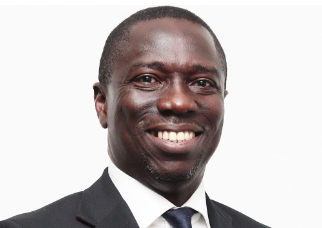

Ighodalo confident in Judiciary as He challenges Edo Governorship election results
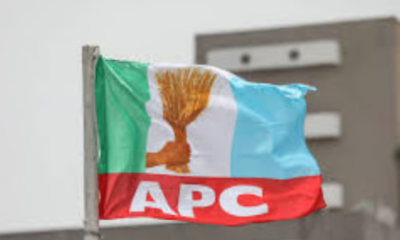

INEC Refutes APC claims of BVAS smuggling in Edo Governorship Election
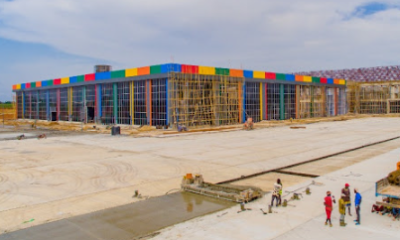

Flight operations at Ebonyi’s Chuba Okadigbo Airport set to begin in November
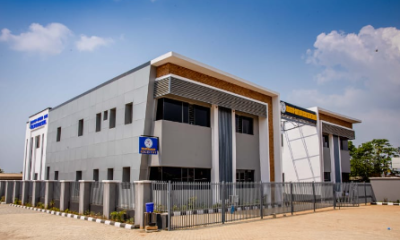

Igbogbo-Baiyeku LCDA inaugurates new legislative building
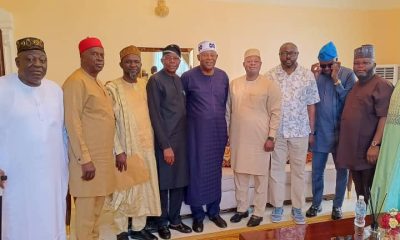

Faleke meets APC State Chairmen
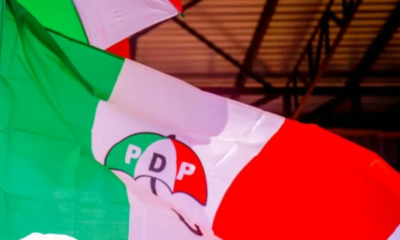

PDP slams APC over criticism of NSE visit to Osun State
Trending

 Entertainment5 days ago
Entertainment5 days agoSimi addresses resurfaced 2012 tweets amid online backlash

 Health1 week ago
Health1 week agoSCFN, LUTH introduce bone marrow transplants as curative treatment for sickle cell

 Health4 days ago
Health4 days agoDeclassified CIA memo explored concealing mind-control drugs in vaccines

 Football1 week ago
Football1 week agoHarry Kane nets brace as Bayern edge Frankfurt 3–2 to go nine points clear

 Football1 week ago
Football1 week agoLate Flemming header stuns Chelsea as Burnley snatch 1–1 draw at Stamford Bridge

 Crime4 days ago
Crime4 days agoSenior police officers faces retirement after Disu’s appointment as acting IGP

 Education6 days ago
Education6 days agoPeter Obi urges JAMB to address registration challenges ahead of exams

 Crime1 week ago
Crime1 week agoTwo killed, seven injured in early-morning shooting in Richmond’s Shockoe Bottom

